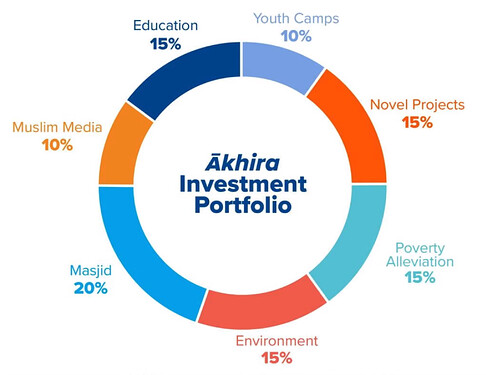I thoroughly enjoyed reading this paper by Dr. Osman Umarji of Yaqeen Institute on the psychology of wealth from an Islamic lens. He not only explores our relationship with wealth but also lays out a framework on how to build a Prophetic money mindset. I’ve included some excerpts below but highly recommend you read the full paper.
On reframing ownership of wealth
The Islamic notion that wealth ultimately belongs to Allah, and we are only trustees, has substantial ramifications for how wealth is spent and invested. Once the believer internalizes their role as a trustee, they become responsible for safeguarding the trust, understanding the terms of the trust to determine who has rights over the assets, and then distributing the assets to the deserving parties.
On reframing investing and spending
Ethical investing is encouraged in Islam, as the individual benefits by having their wealth grow and society benefits as the economy grows through successful investments. ʿUmar ibn Khaṭṭāb advised, “Invest the wealth of orphans so that it will not be eaten away by zakah." This statement establishes that money lying around will decrease due to the obligation of zakah. If a person had $10,000, it would become $9,750 after paying 2.5% in zakah ($250) at the end of the year. After 10 years, the original $10,000 would be worth just under $8,000. Thus, paying zakah should encourage investing, as money not being invested is effectively subject to a negative interest rate of -2.5% (this is only referring to interest from a purely financial perspective, not from an Islamic legal or spiritual perspective).
On reframing what constitutes true wealth
Therefore, if we return to the definition of investing as a method of allocating wealth into assets that one expects to profit from in the future, there can be no greater investment in one’s future, in this life and the afterlife (ākhirah ), than philanthropy and charitable giving. Similarly, just as investing in our personal dunyā portfolio is important and has best practices, investing in our personal ākhirah portfolio also has best practices to be mindful of.
On Allah’s wisdom in distributing wealth
Ibn Taymiyyah and Ibn Kathīr both explained that poverty may be more beneficial for some people than wealth, whereas wealth may be more beneficial for others. However, this knowledge is only known to Allah, and the believer’s responsibility is to distribute wealth in the most appropriate fashion. Allah provides for people through various means, including through jobs, investments, inheritance, zakah, and through people’s generosity. Therefore, the believer should always look for opportunities to be the means by which Allah provides sustenance to others.
